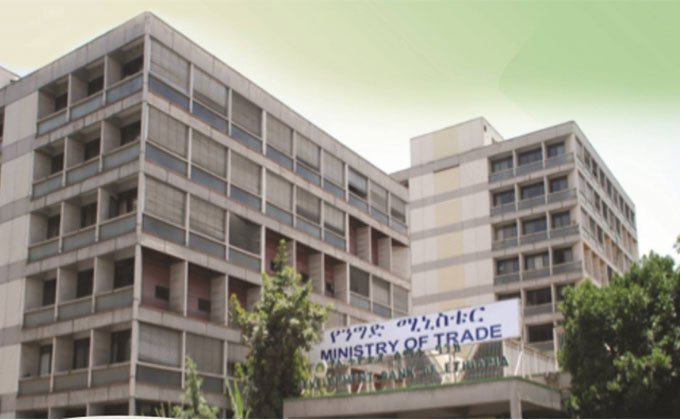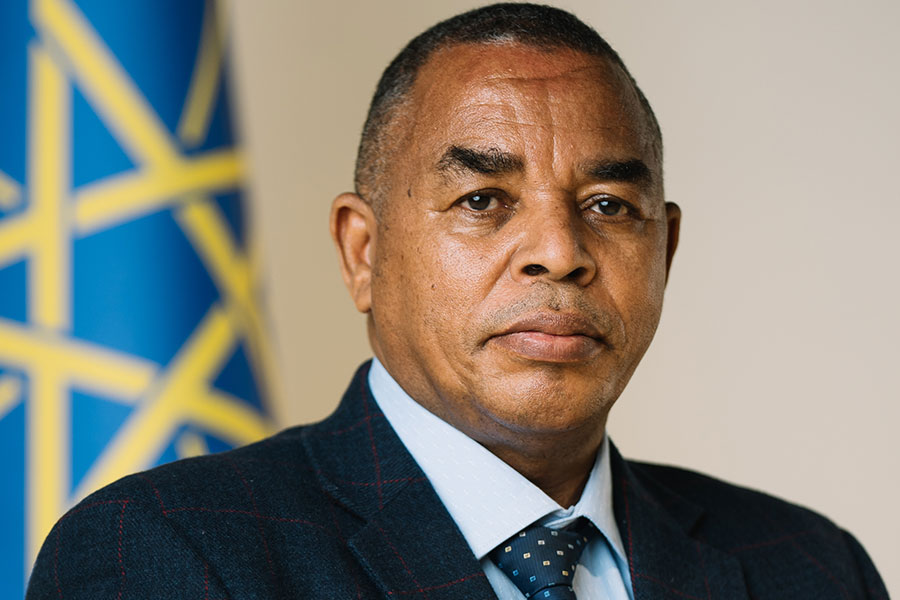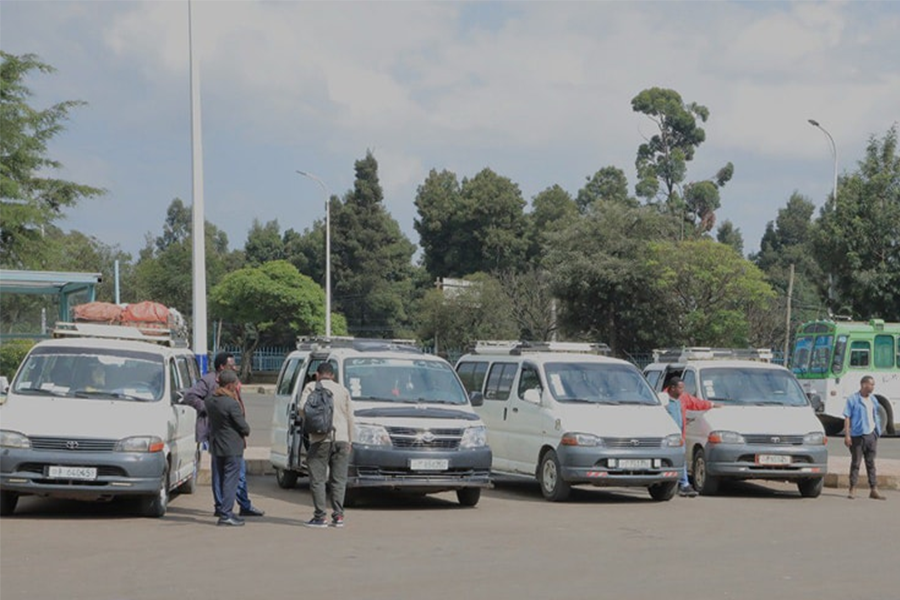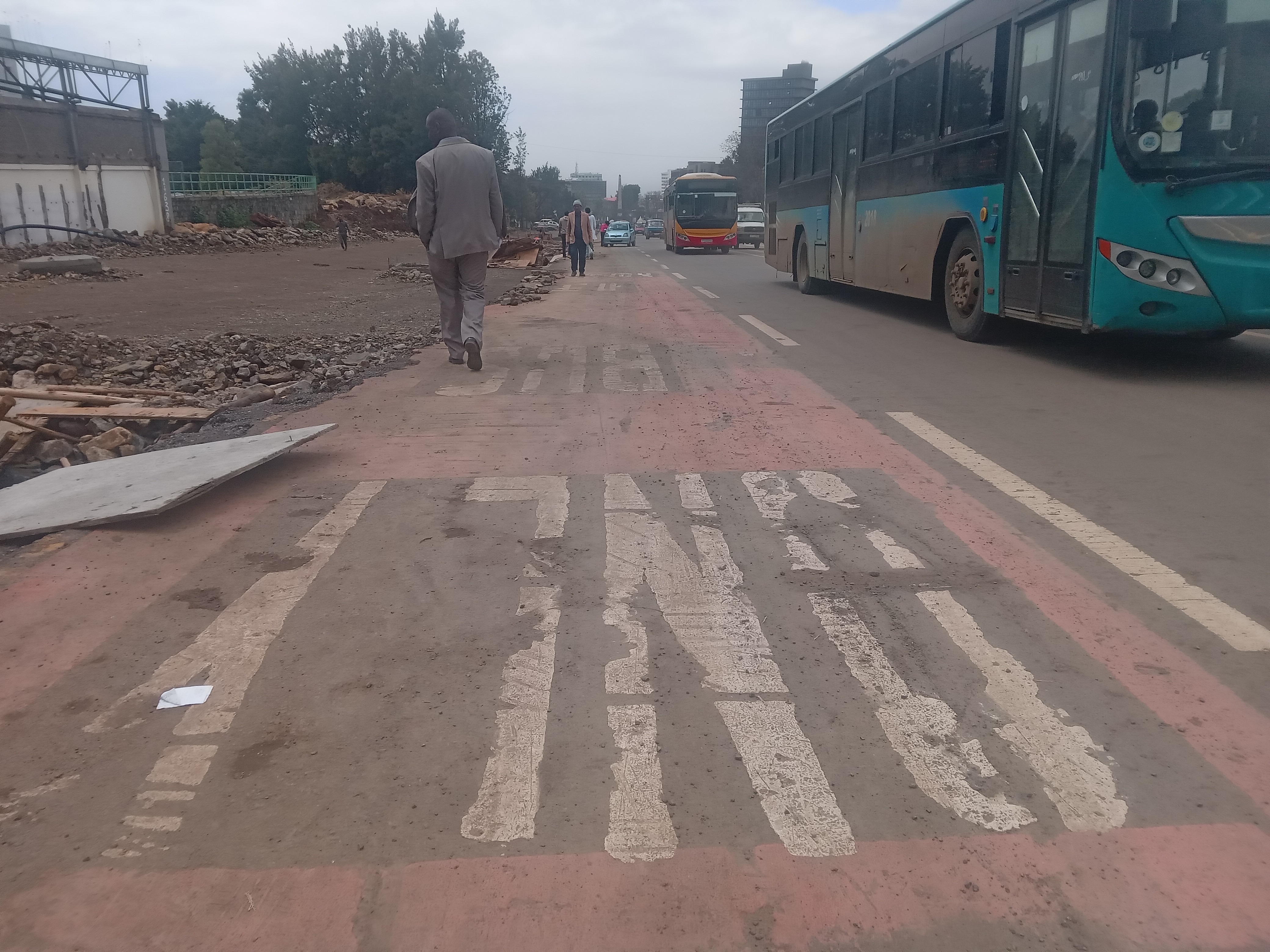
Fortune News | Aug 01,2020
The Transport Ministry has deployed a team of professionals tasked with ensuring the consistent implementation of health standards across the transport sector of the country.
The professionals were deployed as part of the ongoing effort to ward off the spread of the Novel Coronavirus (COVID-19). The inspectors, deployed to all regional capitals and city administrations, will be observing and monitoring bus stations, warehouses, terminals and dry ports. Divided into six teams, the officers were deployed three weeks ago to assess the sector.
The personnel have been dispatched to ensure that precautionary measures such as physical distancing, washing hands, avoiding handshakes, using face masks and restricting seating to 50pc capacity are being met. They will also assess whether ports and airports are isolating suspects and quarantining new arrivals properly. The teams, made of three individuals each, are tasked with providing a report of their assessments.
As part of the effort to contain the spread of the virus, the Ministry has also decreased the number of transportation lines between the capital and the regional administrations by 60pc from 232 in order to discourage the movement of people.
The teams will give particular attention to assessing the 25 major bus stations across the country, including six bus stations in the capital, that are under the Federal Transport Authority.
The purpose of the field assessment is to reduce and prevent the spread of the pandemic at stations, warehouses and dry ports across the country, according to Endalkachew Tsegaye, communications director at the Ministry of Transport.
This is following a gap in the implementation of the transport directive and safety measures issued by the Ministry that ordered vehicles to load only half of their capacity.
“We’ve learned that there is negligence in observance of the transport provisions," he said. "We have to standardise the transportation service provisions throughout the country according to the state of emergency decree."
The field assessment and recommendations will be put up for further decisions and new regulations, according to Endalkachew. A joint resolution between the Ministry of Transport, the Federal Transport Authority and the Ministry of Health is also expected to come from the report on the field observations.
The Federal Transport Authority has set up two new terminals last week for testing and disinfection. The terminals are installed at Galafi on the Ethio-Djibouti border, 114Km from Semera in Afar Regional State, and at Dewele, 214Km from Dire Dawa in Somali Regional State.
At these terminals, drivers will be screened, disinfected and tested when they pass through the borders, according to Yigzaw Dagnew, communications director at the Authority.
“We're working to preserve the supply chain while avoiding transmission of the virus since these outlets are very crucial for healthcare and the supply of other civil logistics,” Yigzaw said.
Abera Kumie, associate professor of preventative medicine at Addis Abeba University, cautions that the virus is spreading among the public and that the government should work toward limiting the transmission rate to one or less than one new case per infection.
“The government should be bold in taking assertive actions to curb the pandemic, because these gatherings create a conducive environment for the virus to be diffused,” said Abera.
The Ministry of Health has also distributed infrared thermometers to terminals and bus stations, according to Seharela Abdulahi, state minister for Health.
“The alternate license plate regulation didn’t work as anticipated," she said, "so we increased payments by 75pc and 100pc to limit the movement of people.”
While COVID-19 cases in Ethiopia all came from travellers initially, community transmission has now made up the majority of cases for the past two weeks.
“We're preparing for the worst-case scenario," Seharela told Fortune. "We're training healthcare personnel, reserving medical logistics and personal protective equipment and preparing healthcare centres."
Public gatherings, however, have proven to be more disastrous than public transportation for the spread of the virus, according to the Minister.
“In Lideta District many people were gathered to attend a funeral and most of them and their families caught the virus,” she said. “We've put the District under partial lockdown. The virus is now spreading around Addis Ketema and Lideta.”
The government should employ heavy surveillance to track down contacts and carry out door-to-door screenings, and testing should be occasional, recommends Negussie Deyessa, associate professor of epidemiology at Addis Abeba University.
“There is carelessness because of the small number of confirmed deaths so far,” he said.
Local authorities should also play a vital role, according to him.
“The lower tiers of government should be given sufficient financial assistance and authoritative power to prevent the virus, and the federal government should be supportive as a coordinator,” he urged. "The spread of the pandemic is inevitable, but the government should work to slow it down."
PUBLISHED ON
Jun 07,2020 [ VOL
21 , NO
1050]

Fortune News | Aug 01,2020

Radar | Apr 08,2023

Radar | Oct 28,2023

Radar | Aug 18,2024

Fortune News | Apr 17,2020

Fortune News | Oct 12,2019

Fortune News | Aug 27,2022

Radar | Sep 29,2024

In-Picture | Apr 13,2025

Fortune News | Apr 22,2022

Dec 22 , 2024 . By TIZITA SHEWAFERAW
Charged with transforming colossal state-owned enterprises into modern and competitiv...

Aug 18 , 2024 . By AKSAH ITALO
Although predictable Yonas Zerihun's job in the ride-hailing service is not immune to...

Jul 28 , 2024 . By TIZITA SHEWAFERAW
Unhabitual, perhaps too many, Samuel Gebreyohannes, 38, used to occasionally enjoy a couple of beers at breakfast. However, he recently swit...

Jul 13 , 2024 . By AKSAH ITALO
Investors who rely on tractors, trucks, and field vehicles for commuting, transporting commodities, and f...

Oct 25 , 2025
The regulatory machinery is on overdrive. In only two years, no fewer than 35 new pro...

Oct 18 , 2025
The political establishment, notably the ruling party and its top brass, has become p...

Oct 11 , 2025
Ladislas Farago, a roving Associated Press (AP) correspondent, arrived in Ethiopia in...

Oct 4 , 2025
Eyob Tekalegn (PhD) had been in the Governor's chair for only weeks when, on Septembe...